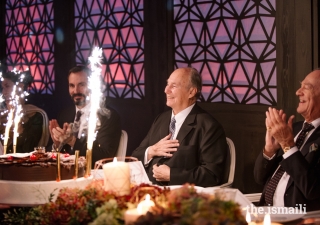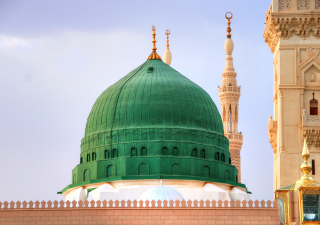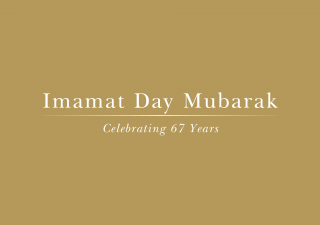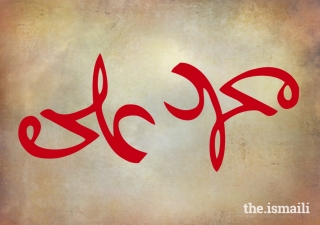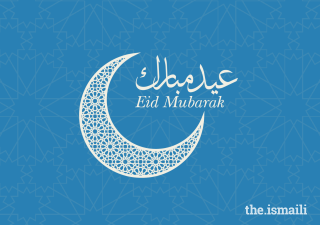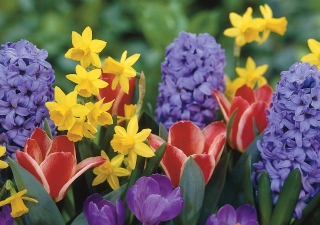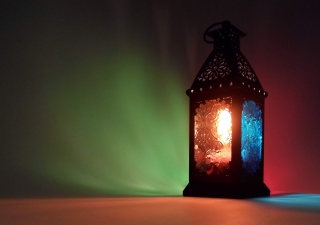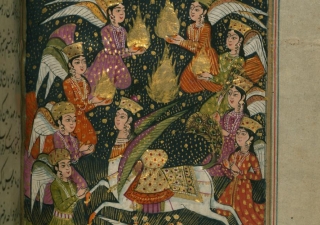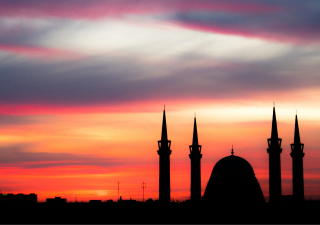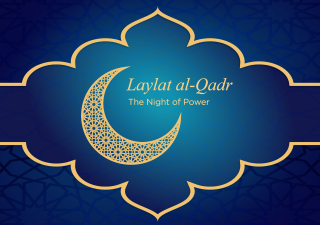Festivals
On 13 December 2024, Ismailis around the world will celebrate Mawlana Hazar Imam’s 88th birthday — an occasion to reflect on the unique spiritual bond that links each murid to the Imam-of-the-Time.
This week, Muslims around the world commemorate Milad-un-Nabi, literally meaning the “birth of the Prophet.” Prophet Muhammad (peace be upon him and his progeny) was born in Mecca in the year 570 CE and grew up to be a respected merchant, known for his honesty, integrity and trustworthiness. At the age of 40, he received his first revelation from Allah, marking the commencement of his mission as Allah's last and final messenger.
Foremost among the principles of the Shia Ismaili Tariqah of Islam is the recognition of the Imam of the Time. Imamat Day is an occasion to reaffirm this principle, express gratitude to Mawlana Hazar Imam, and to reaffirm our spiritual allegiance to the Imam and our commitment to the ethics of the faith.
This week, Shia Muslims across the world observe Eid-e Ghadir, marking the anniversary of an important event in Muslim history. According to Shia belief, tradition, and interpretation of history, this occasion commemorates the pivotal gathering at Ghadir Khumm, when Prophet Muhammad (peace be upon him and his family) — based on a divine command from Allah — designated Hazrat Ali as his successor and the first in the continuing line of hereditary Imams.
This week, alongside our sisters and brothers in Islam, we commemorate Eid al-Adha, the Festival of Sacrifice. The occasion recalls the monotheistic ethos at the heart of the Abrahamic traditions of Judaism, Christianity, and Islam.
This week, Ismaili Muslims worldwide observe Navroz (Nowruz), a festival that marks the beginning of a new year and the first day of spring. Navroz signifies a time of spiritual renewal and physical rejuvenation, as well as a spirit of gratitude for blessings and an outlook of hope and optimism.
In Muslim tradition, Ramadan is a time of heightened commitment to piety and purification through special observances such as fasting, the performance of good deeds – including charitable giving and voluntary service – and through personal sacrifices of material comforts. These observances can lead to spiritual fulfilment and a sense of renewal.
This week, Ismailis around the world join many of their brothers and sisters in the wider Muslim Ummah in observing Mi‘raj. Esoteric interpretations of Islam tend to emphasise the spiritual significance of Mi‘raj, which is seen as a symbol of the journey of the soul, and the human potential to rise above the trappings of material life.
This week, Ismailis and other Muslims mark Yawm-e Ali. The festival commemorates the birthday of Hazrat Ali (peace be upon him), who is revered by many Muslim communities for his wisdom, piety, and leadership.
Muharram is a month of remembrance in the Islamic calendar, observed every year as a time to honour and respect the life and deeds of Hazrat Imam Husayn (peace be upon him).
Laylat al-Qadr, or the Night of Power, commemorates one of the most significant events in the history of Islam. It is the night when Prophet Muhammad (peace be upon him and his family) received the first revelation from Allah.
Muslims around the world look forward to Eid al-Fitr as an occasion of peace, happiness, joy and festivity. It is a day for special prayers and the extension of forgiveness and generosity.

